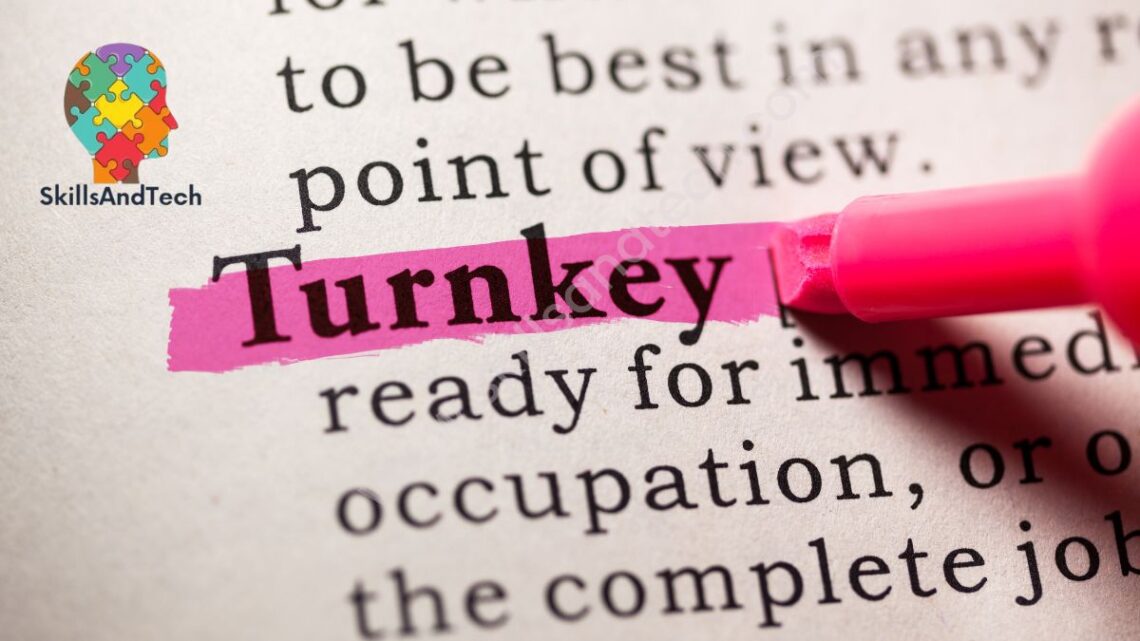
How to Start a Turnkey Business | SkillsAndTech
Starting a business takes a lot of time, money and paperwork. In fact, nine out of 10 startups fail because they run out of cash, get outcompeted or lose their focus, among other reasons. One way to avoid some of these pitfalls is to buy an existing business. From franchises and MLM companies to commercial real estate, turnkey businesses come in all shapes and sizes and may already have an established customer base.
See Also: Cost of Starting a Video Rental Business
Decide whether you want to buy a franchise, an existing business or a turnkey online store. Another option is to join an MLM distribution network and sell the company’s products in a physical store or over the Internet. Regardless of what option you prefer, research the companies you’re interested in. Make sure they comply with the law, have a solid customer base and provide everything you need to get started.
Table of Contents
Types of Turnkey Businesses
See Also: How to Start a Corner Store
When you launch a new business, you must register it with the state, obtain licenses and permits, check what you can and cannot do, purchase equipment and more. Start-up legislation can be mind-wrecking, especially in the healthcare, construction and manufacturing industries. Things are even more challenging for those who are just starting out and have little experience running a company. If that’s your case, consider purchasing a turnkey business.
As their names suggest, turnkey businesses include everything you need to get your operations up and running. To put it simply, you don’t have to develop a product from scratch, find the perfect location, and buy or lease equipment. Your only job is to unlock the doors and market your products or services. Several types of turnkey businesses exist, including:
See Also: How to Open a Sprint Store
- Franchises. This business model grants entrepreneurs (franchisees) the right to use a company’s know-how, trademarks and processes in order to sell its products or services, according to specific rules. Some franchises include the building and equipment needed to start your business. In exchange, you will pay a one-time franchise fee and royalty fees.
- Multi-level marketing (MLM). MLM companies promote and sell their products through a network of distributors who receive training and are paid a commission based on the number of sales or referrals. Mary Kay beauty consultants, for instance, receive commissions of up to 50% as well as rewards and cash bonuses.
- Buy an existing business. Take any newspaper or check the local ads and you’ll find fully functioning beauty salons, auto repair shops, factories and other businesses for sale. More than 2,400 small businesses were sold in the third quarter of 2019. These companies already operate at full capacity and allow for immediate operation.
- Turnkey online stores. With a turnkey online shop, you don’t have to spend days or weeks on website design, inventory planning and acquisition and other aspects of selling products over the Web. Just like with a brick-and-mortar turnkey business, you get everything you need to get started right away.
See Also: What is The Difference Between Franchisor vs. Franchisee
Research Your Options
Whether you want to buy a franchise or a local business, it’s crucial to research the company you’re interested in. Try to find out why that particular business is being sold, check its financial reports and make sure it complies with the law and doesn’t have any outstanding debt. You also need to research its growth potential, target market and competitors. Beware that its inventory can be inflated or nonexistent, or that its leases may expire soon.
See Also: What Is The Difference Between Franchise Vs. Sole Proprietorship
Another thing to consider is that not all franchises are turnkey. A real turnkey business comes with everything you need (except workforce) to begin your operations. If you’re planning to buy a franchise, make sure you know exactly what’s included and what you must do yourself. Inquire about its capital requirements, fees and marketing regulations.
Read customer reviews of the business to see how its products and services are perceived by the public. If possible, ask the seller to file Form 4506-T to get access to the company’s tax return information. Also, try to find out whether or not the business is fully licensed and insured and what other papers you need to get started.
See Also: How Much Does it Cost to Start a Chicken Restaurant
Follow and Reevaluate the Business Plan
The seller should provide you with a business plan and information about its target market, products and competitors, but you still need to plan your operations and do some research on your own. For example, if the company already has an established customer base, you may want to expand or narrow down its reach; either way, conducting market and industry research is a must.
See Also: How to Start a Medical Uniform Franchise
The business plan should cover the company’s goals in the short- and long-term, its target audience, selling proposition, competitive advantage, organizational structure and marketing strategy. Include financial statements and consider your capital requirements. If you need funding to expand your operations, buy new equipment or update your inventory, determine whether you’ll reach out to investors to take out a small business loan.
Remember, starting a turnkey business is just the first step in your journey as an entrepreneur. Its success depends largely on how much time and effort you put into it. Choose a niche you are familiar with, conduct market and competitive research, buy a company that aligns with your goals and then take the steps needed to turn it into a successful venture.






2 Comments
Pingback:
Pingback: